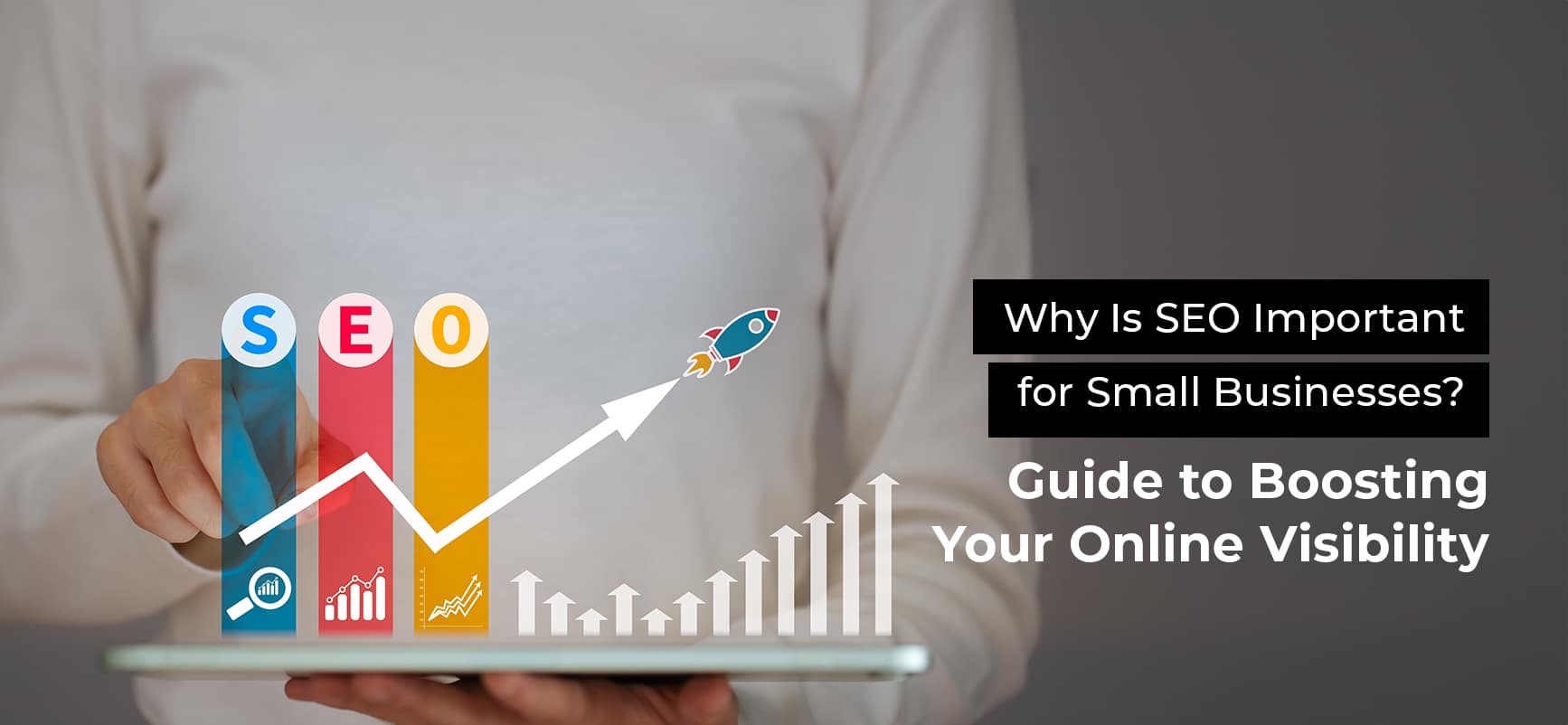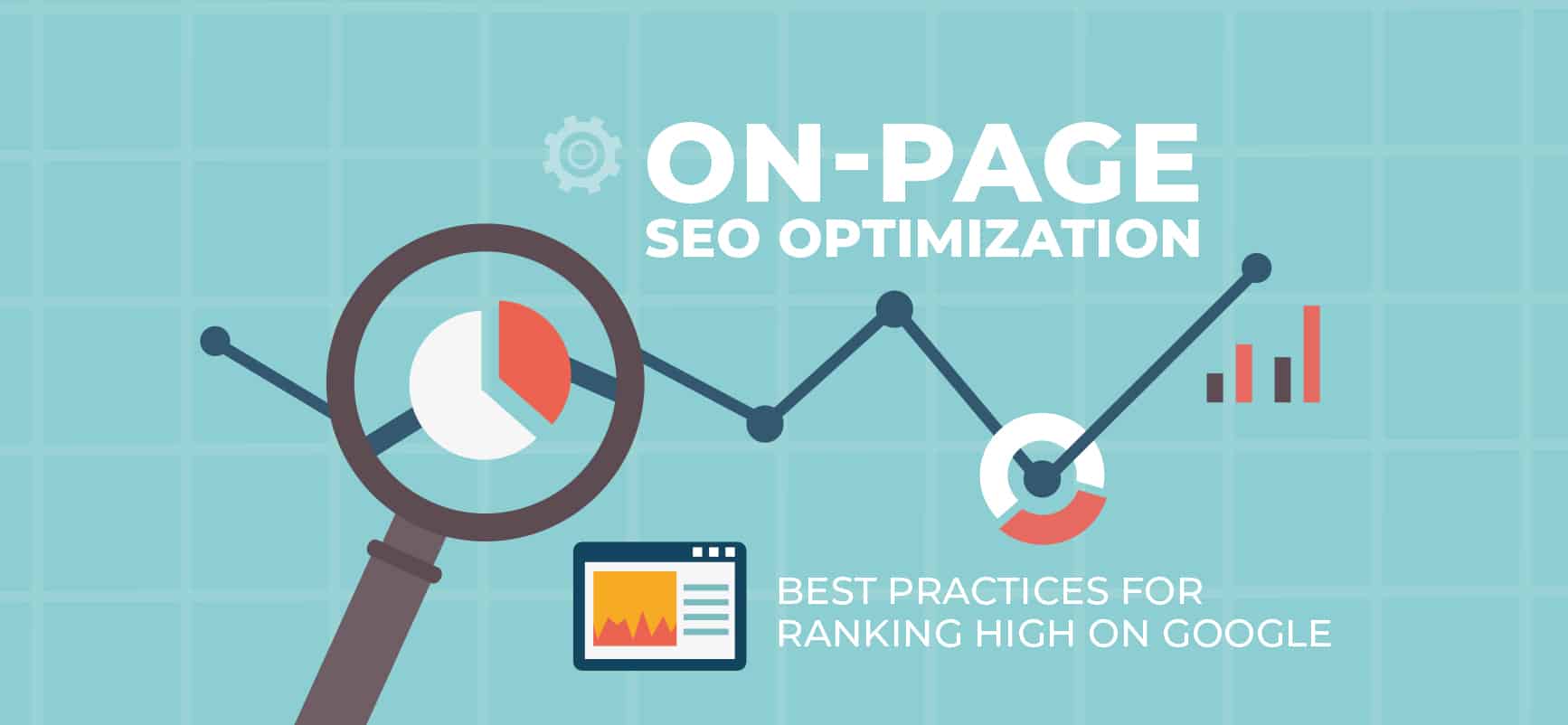Why Is SEO Important for Small Businesses? A Guide to Boosting Your Online Visibility
Introduction
Did you know that 97% of consumers use online resources to research products or services before making a purchase? This statistic underscores the crucial role of online presence for small businesses in today’s digital landscape. However, simply having a website isn’t enough. To truly thrive in the online world, understanding and implementing Search Engine Optimization (SEO) is essential. SEO is the process of optimizing your website and online content to rank higher in search engine results pages (SERPs), making your business more visible to potential customers searching for products or services like yours. This increased online visibility can significantly boost your website traffic, brand awareness, and ultimately, your bottom line. In this guide, we delve into why SEO is crucial for small businesses and explore actionable strategies to boost their online presence effectively.
Table of Contents
Why Is SEO Important for Small Businesses?
Now that we understand the basic concept of SEO, let’s delve deeper into why it’s so important for small businesses:
Increased Website Traffic and Visibility
SEO attracts relevant visitors through organic search. When you optimize your website and content with relevant keywords, search engines are more likely to include your website in their results for those specific searches. This means potential customers actively searching for products or services related to your business are more likely to find you organically, leading to increased website traffic and brand awareness.
Cost-Effective Marketing Strategy
Compared to traditional advertising methods like print ads or TV commercials, SEO is a significantly more cost-effective marketing strategy. While it requires time and effort to implement, there are no ongoing costs associated with ranking organically in search results. Additionally, the long-term benefits of SEO outweigh its initial investment. Once your website is properly optimized, it can continue to attract qualified leads and generate valuable traffic for years to come.
Building Brand Credibility and Trust
High search engine rankings attained through effective SEO efforts contribute to building brand credibility and trust among potential customers. When a small business appears at the top of search engine results pages, it signals to users that the business is reputable and trustworthy. This instills confidence in potential customers, increasing the likelihood of them engaging with the business and making a purchase. Furthermore, by consistently producing high-quality content and earning backlinks from authoritative websites, SEO helps establish the business as an industry authority, further enhancing brand credibility and positioning the business as a trusted leader in its field.
-By focusing on these key aspects of SEO, small businesses can improve their online visibility, attract more qualified leads, and ultimately, achieve their business goals.
Getting Started with SEO: A Practical Guide:
A. Keyword Research:
Keyword research is the foundation of effective SEO for small businesses. Identifying relevant keywords that align with your target audience’s search intent is crucial for optimizing your website to attract organic traffic. Tools such as Google Keyword Planner, SEMrush, and Moz Keyword Explorer can assist in uncovering valuable keywords with high search volume and low competition. Additionally, strategies such as analyzing competitor keywords and leveraging long-tail keywords can further enhance your keyword research efforts.
B. On-Page Optimization:
On-page optimization involves optimizing various elements of your website to improve its visibility and relevance in search engine results. This includes optimizing titles, meta descriptions, headings, and body content with relevant keywords. By ensuring that each page of your website is well-optimized for target keywords and provides valuable information to users, you can enhance its chances of ranking higher in search engine results pages (SERPs).
C. Technical SEO:
Technical SEO focuses on optimizing the technical aspects of your website to improve its crawling, indexing, and overall performance in search engines. Key aspects include website speed, mobile-friendliness, site architecture, and URL structure. Ensuring that your website is fast-loading, mobile-responsive, and easily accessible to search engine crawlers is essential for achieving higher rankings. Consulting resources such as Google’s Webmaster Guidelines and SEO blogs can provide detailed insights into technical SEO best practices.
D. Content Marketing:
Content marketing plays a pivotal role in SEO by providing valuable and engaging content that attracts and retains website visitors. Creating high-quality content targeted towards your audience’s interests and needs can help establish your brand as an authority in your industry and drive organic traffic to your website. Utilize various content formats such as blog posts, infographics, videos, and ebooks to diversify your content strategy and appeal to different audience preferences.
E. Link Building:
Link building involves acquiring high-quality backlinks from authoritative websites to improve your website’s authority and credibility in the eyes of search engines. Backlinks serve as votes of confidence for your website’s content and can significantly impact its search engine rankings. Strategies for acquiring backlinks include guest blogging, outreach to relevant websites, and creating valuable content that naturally attracts links from other sources.
F. Local SEO:
For brick-and-mortar businesses, optimizing for local search is essential for attracting nearby customers. Local SEO involves optimizing your website and online presence to appear in local search results for relevant keywords. Key steps include claiming and optimizing your Google My Business listing, ensuring consistent NAP (name, address, phone number) information across online directories, and encouraging customer reviews and ratings. By prioritizing local SEO efforts, small businesses can increase their visibility to local customers and drive foot traffic to their physical locations.
Measuring and Analyzing SEO Performance
A. Identifying Key Performance Indicators (KPIs):
Tracking key performance indicators (KPIs) is essential for evaluating the effectiveness of your SEO efforts and measuring the impact on your small business, By identifying and monitoring these KPIs, you can gain valuable insights into the performance of your SEO strategies and make informed decisions to optimize your website for better results.
B. Utilizing Tools for Monitoring Performance:
To effectively monitor SEO performance, it’s crucial to leverage tools like Google Analytics, Google Search Console, and third-party SEO software. Google Analytics provides valuable insights into website traffic, user behavior, and conversion metrics, allowing you to track the effectiveness of your SEO campaigns. Google Search Console offers data on search impressions, click-through rates, and keyword performance, enabling you to identify opportunities for improvement. Additionally, third-party SEO software like SEMrush, Moz, and Ahrefs provide advanced analytics and competitive insights to further enhance your SEO monitoring efforts.
C. Iterating and Optimizing SEO Strategies:
Data analysis and performance metrics serve as the foundation for iterating and optimizing your SEO strategies for continued success. By regularly reviewing performance data and identifying trends and patterns, you can pinpoint areas of improvement and adjust your SEO tactics accordingly, By continuously iterating and optimizing your SEO strategies based on data-driven insights, you can maximize the impact of your efforts and drive sustainable growth for your small business.
Overcoming Common SEO Challenges for Small Businesses
A. Addressing Budget Constraints and Resource Limitations:
One of the most common challenges small businesses face when implementing SEO strategies is budget constraints and resource limitations. However, there are several strategies that small businesses can employ to overcome these challenges. These include prioritizing high-impact SEO tactics that offer the best ROI, such as focusing on long-tail keywords with lower competition, optimizing existing content rather than creating new ones, and leveraging free or low-cost SEO tools and resources available online.
B. Dealing with Algorithm Updates, Competition, and Changes in Search Engine Trends:
Another common challenge for small businesses in the realm of SEO is navigating algorithm updates, competition, and changes in search engine trends. Search engine algorithms are constantly evolving, making it essential for businesses to stay informed and adapt their SEO strategies accordingly. Additionally, small businesses often face stiff competition from larger companies with bigger budgets and established online presence. To overcome these challenges, small businesses should focus on creating high-quality, relevant content that provides value to their target audience, building authoritative backlinks from reputable websites, and staying updated on industry trends and best practices.
C. Seeking Professional Assistance from SEO Experts or Agencies:
For small businesses struggling to navigate complex SEO challenges on their own, seeking professional assistance from SEO experts or agencies like Proven 360 can be immensely beneficial. Experienced SEO professionals have the expertise, resources, and industry knowledge to develop and execute tailored SEO strategies that align with business goals and objectives.
In today’s digital landscape, a strong online presence is critical for small businesses to thrive. By implementing effective Search Engine Optimization (SEO) strategies, you can significantly boost your website traffic, brand awareness, and ultimately, your bottom line. This guide has equipped you with the essential understanding of why SEO matters for small businesses and provided actionable steps to get you started. Remember, SEO is a continual process, and consistent effort is key to achieving long-term success. By continuously monitoring your performance, optimizing your strategies, and staying informed about the ever-evolving SEO landscape, you can unlock the power of SEO and propel your small business towards online success.
Unleash the full potential of SEO for your small business with Proven 360! Our expert marketing agency offers customizable solutions to boost your online presence, dominate search results, and achieve explosive growth. Contact us today for a free consultation and unlock the power of SEO to propel your business forward!






